Straight seam steel pipe does not refer to a certain type of steel pipe, but a large class of welded pipe. It is made of steel strips. Steel pipes made with straight seam high-frequency welding equipment can be called straight seam steel pipes. In fact, in simple terms, When welding steel plates, the steel pipes whose welds are on the same straight line can be called straight seam steel pipes.
According to different uses and subsequent production processes, it can be roughly divided into scaffolding pipes, fluid pipes, wire casings, support pipes, and guardrail pipes. Low-pressure fluid welded pipes are a type of straight seam welded pipes. After welding, water, and gas are transported separately. A hydraulic test, so the price of low-pressure fluid pipes is usually higher than that of ordinary longitudinal welded pipes, such as 1-inch (DN25) (ie 33.5 * 3.25) welded steel pipe fluid, welded steel pipes are also called welded pipes, after bending, use steel plates or Steel strip welding can be divided into straight seam welded pipe and spiral welded pipe according to the form of the weld, and can be divided into ordinary welded pipe, galvanized welded pipe and oxygen blown welded pipe, wire casing, transformer tube, thin-walled pipe welding, special-shaped pipe according to the application Fusion and spiral welded pipe.
General-purpose welded pipe: This kind of welded pipe is mainly used to transport low-pressure liquid or fluid. Of course, in addition to these types of steel, some easy-to-weld steels can be used to make general-purpose welded pipes. There are some requirements for surface quality. This kind of steel pipe has to go through Water pressure, bending, flattening, and other tests.
The double-sided submerged arc straight seam steel pipe is also a straight seam steel pipe. The submerged arc welded steel pipe adopts the JCOE cold forming process, the weld seam uses welding wire, and the submerged arc welding uses granular flux. Produce arbitrary specifications, wall thickness 325~1420 mm, which can meet the customer's requirements for steel pipe size. Domestic standard production usually uses high-frequency straight seam steel pipes. High-frequency straight seam steel pipes are usually called raw steel pipes. The name of this industry is different from submerged arc Welded straight seam steel pipe or thermal expansion high-frequency straight seam steel pipe, their names are often confused.
Matters needing attention in the use of straight seam steel pipe
The installation and use of straight seam steel pipes have strict technical requirements, which need to be carried out according to the actual situation and operating procedures to ensure quality. The construction preparation before the use of straight seam steel pipes, to excavate pipe trenches and complete the masonry of pipe wells, it is necessary to install straight seam pipes Steel pipes, including electric welding machines, cutting machines, electric hammers, and polishing machines, can only be installed after the equipment is ready.
For the installation of straight seam steel pipes, design and position the pipes according to the drawings, prefabricate the pipe racks according to the site conditions, then cut the materials according to the design and site, use a polishing machine to polish the grooves and then weld them.
Use quality requirements: branch pipes should not be welded at the weld, and welds at bends should be avoided. The deviation per meter for vertical installation should be less than 3 mm, and the deviation per meter for horizontal installation should be less than 1 mm. The weld should be straight and full. There is no burn-through and cracks on the weld surface.
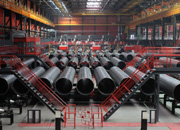 Threeway Steel is known as a professional supplier engaged in manufacturing and distributing a wide range of steel pipe, and our headquarter located the central part of China – Hunan and six associated factories throughout China.
Threeway Steel is known as a professional supplier engaged in manufacturing and distributing a wide range of steel pipe, and our headquarter located the central part of China – Hunan and six associated factories throughout China.
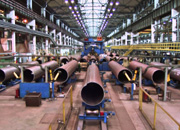 Threeway Steel is known as a professional supplier engaged in designing, manufacturing and distribution of a wide range of steel products with the headquarter located the central part of China – Hunan and six associated factories throughout China.
Threeway Steel is known as a professional supplier engaged in designing, manufacturing and distribution of a wide range of steel products with the headquarter located the central part of China – Hunan and six associated factories throughout China.
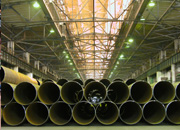 Threeway Steel is known as a professional supplier engaged in designing, manufacturing and distribution of a wide range of steel products with the headquarter located the central part of China – Hunan and six associated factories throughout China.
Threeway Steel is known as a professional supplier engaged in designing, manufacturing and distribution of a wide range of steel products with the headquarter located the central part of China – Hunan and six associated factories throughout China.
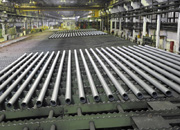 Threeway Steel is known as a professional supplier engaged in designing, manufacturing and distribution of a wide range of steel products with the headquarter located the central part of China – Hunan and six associated factories throughout China.
Threeway Steel is known as a professional supplier engaged in designing, manufacturing and distribution of a wide range of steel products with the headquarter located the central part of China – Hunan and six associated factories throughout China.
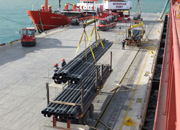 Threeway Steel is known as a professional supplier engaged in designing, manufacturing and distribution of a wide range of steel products with the headquarter located the central part of China – Hunan and six associated factories throughout China.
Threeway Steel is known as a professional supplier engaged in designing, manufacturing and distribution of a wide range of steel products with the headquarter located the central part of China – Hunan and six associated factories throughout China.

